No, Really, We Voted Wisely On This In New Orleans
I’ve just read a couple of pieces (here and here) urging the 2024 SBC Convention to abandon the ratification of the Law Amendment begun in 2023 in New Orleans. I respect the guys who wrote them for airing things out before the Convention (as distinct from pulling parliamentary rabbits out of the hat at the meeting to frustrate the vote). But, in my book, their rationales are curious.
They put forth the following concerns, and I’ll venture brief responses in the hope that you’ll see that their objections don’t hold water. Put positively, I hope you’ll see that updating our bylaws to distance ourselves from the practice of calling women “pastors” is perfectly reasonable and, indeed, compelling.
1. “It would violate church autonomy, make us more hierarchical, and confuse ‘messengers’ with ‘churches.’” I’m reminded of the breathless “banned books” displays in our public libraries, lamenting the abuse suffered by the likes of Fifty Shades of Grey, Two Boys Kissing, The Handmaid’s Tale, and Heather Has Two Mommies (these from the American Library Association’s victim’s list; and, yes, they include the Bible to pretend they’re equitable in their hand-wringing). Of course, these books aren’t banned at all; tons of them are sold. It’s just that some libraries and schools wouldn’t use public funds to buy them.
Similarly, when the SBC says, “We’re not buying that,” to churches designating women as “pastors,” the churches are perfectly free to go their own independent way. Autonomy preserved.
As for the argument that the Convention (the actual meeting) is made up of people rather than churches, so we have no business turning them away people when their churches are at fault, I say, “Huh?” Did we then goof in the 1990s when we said we wouldn’t seat messengers from those two pro-gay North Carolina churches? Should we have invited their messengers to come ahead to Houston, where we could ask them individually if they were on board with their church’s policy? That would seem to follow. If not, how would they have been elected messengers in the first place?
2. “It’s a tertiary matter, nothing to divide over.” It’s commonplace now to do “triage” as we decide who is in and who is out in choosing allies for this or that cause. In this model, we link arms (“Together for the Gospel”) with paedobaptists, but we don’t sprinkle babies in our own services. For that matter, we sometimes link arms with atheists, as when we joined with Nat Hentoff of the Village Voice in opposing partial-birth abortion.
Some prefer the “primary/secondary/tertiary” rubric. Other others speak of the differences between “convictions/commitments/preferences.” Yes, such talk has its place. We don’t break Southern Baptist fellowship over differing views on the millennium or grade-school preferences, whether public, Christian, or home options.
On the other hand, Paul doesn’t preface 1 Timothy 2:12-13, 1 Timothy 3:1-7, or Titus 1:5-9 with, “I’m gonna offer some tertiary counsel to perhaps shape your preferences on appointing elders, just tossing out some interesting items for debate.” That wouldn’t fit his plain speaking, which he grounds in creation.
Yes, some try to cast these verses as purely situational, whether addressing unruly women “in the pews” (and later at home) or the potential for bad PR in the city. I remember reading one rationale for “taming” Paul, a word of commentary in the Interpreter’s Bible, published by the rapidly declining United Methodist Church: It patronized poor Paul by saying he was “laboring under rabbinic prejudices.” Mercy!
But wouldn’t you know it, the rascally Apostle had to tie things to Genesis, making it a lasting directive rather than a quick fix.
3. “The 1993 bylaw amendment to exclude homosexuality-affirming churches was an ethical matter; this isn’t an ethical matter.” So, we’re to read Paul (as we extend the above imaginary preface), as saying, “Please understand, this isn’t a matter of right or wrong, of what’s pleasing to God, of what accords with the creation order, or of what is conducive to the holy flourishing of churches—nothing really ethical to see here. I’m just spitballing. What’ll it be, Rocky Road or Pralines & Cream?”
4. “Let’s not fail to encourage women and make sure to give them due respect.” Just imagine what Susannah Spurgeon, Ann Hasseltine Judson, Fanny Crosby, Annie Armstrong, and Lottie Moon could have accomplished if they’d been honored and blessed by the title “pastor!” As we know, godly women perform countless vital deeds without the title the Bible reserves for men. And they do so in the peace that comes from honoring the guidance of Scripture.
5. “C’mon, it’s just a word.” And besides, children’s ministry directors “shepherd” (“pastor”) their little flocks. Well, yes, you could say that. You could also say they “oversee” (“bishop,” from episkopos, really) the kids and serve as God’s special “person” (“parson”) in and over the ministry. You might even call them Christ’s servants who stand in vicariously (“vicar”) for His leading. Why stop with “pastor”? Or why press for “pastor”? It’s just a word, right?
Well, of course, words can carry a lot of freight. That’s why Americans cast off the British term “master” for their employer and went with the Dutch term “boss.” And that’s why I stuck with the childhood expression for my mother when I was a “big shot man” in my forties (an “executive director” of a state convention), and she was just a female homemaker and church volunteer. I wouldn’t have dreamed of calling her “Agnes.” She was “Mom.”
6. “It’ll wear out the Credentials Committee and eat up Convention time.” If you make them Inspector Clouseaus, searching out over-reaches in function rather than title (e.g., where the pastor’s wife or woman music minister does most of the preaching), things could get interesting—and they should. But that’s not what we’re talking about.
Rather, when a church, as a matter of public record (e.g., on their website), designates a woman to serve in a pastoral office, the Committee can address this “In your face, SBC” action with a recommendation. And, as obvious as the offense is, multiple recommendations could be bundled for a vote. We do it sometimes for resolutions (printed in advance) when the time for that report is running out.
And the talk about burdening the Credentials Committee: What in the world are you suggesting? This is their job. If we need more time to deal with this matter, so be it. It’s not trivial.
7. “It’s going to cost some folks benefits.” Yes, those who belong to churches in defiance of this bylaw could lose seminary enrollment discounts, missionary appointments, etc. But part of the nobility of taking a courageous stand is that it costs you something. We may disagree with your position, but we must admire your zeal for calling women “pastors,” a dedication reflected in your determination to carry this banner out of your comfort zone.
8. “It could mean legal liability.” The irony of our leaders’ warning about this is delicious. They now raise this concern after having blown over $10 million to placate and even pay homage to our questionable #MeToo movement and waived attorney-client privilege to clear a pathway for free-fall litigation.
The truth is, we’ve taken culturally radioactive stands before and have managed just fine, batting away bogus “ascending liability” claims left and right. And I see no evidence that the courts will buck denominational commitments to standards spelled out in their bylaws.
9. “The strictures could spread to our state conventions, associations, colleges, and foundations.” And your point is what? Look, these other Baptist bodies have been drawing lines for ages, well before the SBC got into it.
In the 1960s, I watched as the Arkansas convention excluded four churches over their practice of “alien immersion” and “open communion.” In the 1980s, Shelby Baptist Association (Memphis) expelled a church for hiring a woman pastor. These aren’t fainting flowers. In doing so, such associations and conventions don’t have to surrender their baptistic credentials. We started with associations; don’t act like they’re poor victims waiting to happen.
10. “You’ll be stepping on a slippery slope!” We heard this back in the 90s when we drew a line against churches performing gay marriages and licensing homosexuals to preach. They’d challenge us with the rhetorical question, “What’s next!?” Our minds were meant to reel before impending horrors. Whom else might we exclude? Perhaps a church featuring a wet bar in the lobby or one where women wore pantsuits on the platform.
The problem with slippery-slope arguments is that you must demonstrate how the slide will likely eventuate and how it’s not just as reasonable to think it would slide in the other direction. Back then, it would have been fair to ask, “If we indulge homosexuality, would we later accommodate transsexuality?” Or today, if we roll on with women “pastors,” will we one day appoint “Side-B-homosexual, celibate Christians” as church planters or go the woeful way of the UMC, UCC, PCUSA, AG, ELCA, ECUSA/TEC, and the Disciples of Christ?
Yes, it’s conceivable that we’d add to the bylaws again in the future. But it’s not a willy-nilly affair. You have to have 2/3 votes two years running. But when the world asks us to lose our biblical bearings and some churches are happy to oblige, we might take a stronger stand. I don’t know what it might be, but it would appropriately strike our folks as a big deal, and we’d get after it.
As a thought experiment, let’s imagine a church so enamored with the ancients and ecumenicity that it regularly incorporates selections from the Apocrypha in its responsive readings. So, alongside passages from Psalms and Matthew, we intone words from Judith, Tobit, Second Maccabees, and The Prayer of Manasseh. The BF&M article on Scripture does not mention deuterocanonical sources, so what business do we have in drawing a line it doesn’t mention? Still, I think we might well have cause to say that those guys weren’t our guys and bylaw it accordingly.
11. “It’ll sidetrack us, diverting focus and energy from the main causes of missions and evangelism.” Wittingly or not, this comes right out of the “moderates” playbook against the conservative resurgence. “Let’s quit fussing over inerrancy and get back to the essentials of the Great Commission!”
What we knew then was that when you undermine commitment to the Bible’s “truth without any mixture of error,” you blow it. The same goes for denominations that are laissez-faire about women pastors. There are examples aplenty.
12. “It’s bigoted.” No, really, it’s being implied. We’re told, “Some find diversity troublesome or threatening” and, “We must celebrate our diversity.” So, it’s come to that, casting support for the Law Amendment as a “phobia” instead of a principled stand?
And must we pick up one of the most vacuous, toxic expressions in a culture gone mad—“Celebrate diversity.” That’s what fuels the DEI engine. It’s yard-sign rhetoric. I see one I can order on Amazon with “Diversity Is Celebrated” beneath “Love Wins,” “Black Lives Matter,” and “Women Are in Charge of Their Own Bodies.”
The point is that it all depends on the type of diversity you’re discussing and what mission priorities and scruples you’re willing to set aside to achieve it. We rightfully celebrate male/female diversity in a marriage. We wrongly celebrate diversity when President Biden goes out of his way to appoint a transsexual (Richard, now Rachel, Levine) to a “four-star admiral” health service position.
When I was VP for Convention Relations at the SBC Executive Committee, we published a poster celebrating that, in America, the Bible was preached each Sunday in scores of languages in SBC churches. But it was understood that they were on the same BF&M music sheet. Later, when I chaired the Chicago Metro Baptist Association’s nominating committee, we could draw on various ethnic congregations (e.g., Romanian, French-speaking [Francophone] Haitian, and Hispanic) without compromising on the woman-as-pastor issue.
Conclusion
Back in 1968, Philip Morris introduced Virginia Slims, a cigarette designed for women. Their advertising slogan, “You’ve come a long way, baby,” was meant to capitalize on and advance the secular feminist program that was all the rage in the land. Today, the cause (along with the slogan) flourishes and has crept or charged into the Church, albeit clothed in the language of Zion and ecclesiastical prudence.
Too strong? Well, let me simply express my dismay at the Executive Committee’s full-court press against the scripturally sound, denominationally salubrious Law Amendment, a motion that was affirmed by a supermajority of messengers at our 2023 SBC gathering.
If this sort of disdain for that New Orleans vote continues, I’ll have to say to the members and staff of the entity I served for four years in the 1990s, “Oh, yeah, you’ve come a long way, baby.”
-

Mark Coppenger is on the Advisory Board and serves as a Contributing Scholar at The Center for Baptist Leadership. He taught in either a full-time or adjunct capacity at Vanderbilt, Wheaton, Elmhurst, TIU, MBTS, and SBTS. After teaching three dozen different courses throughout his career, he retired from SBTS in 2019 as a Professor of Christian Philosophy and Ethics. He’s pastored a “legacy” church in Arkansas, planted a church in Illinois, and served as an interim pastor in Kentucky—a total of 17 years as senior pastor—and led SBC student ministry groups at Wheaton and Northwestern. He served in denominational posts in Indianapolis and Nashville, and he chaired the SBC Resolutions Committee in 1989. Mission trips have taken him to South America, Southeast Asia, North Africa, the Middle East, and both Western and Eastern Europe. He has a B.A. from Ouachita University, an M.Div. from SWBTS, and a Ph.D. from Vanderbilt University. He is an adjunct faculty member of The Institute for Public Theology at Founders Ministries. He posts regularly at markcoppenger.com.

